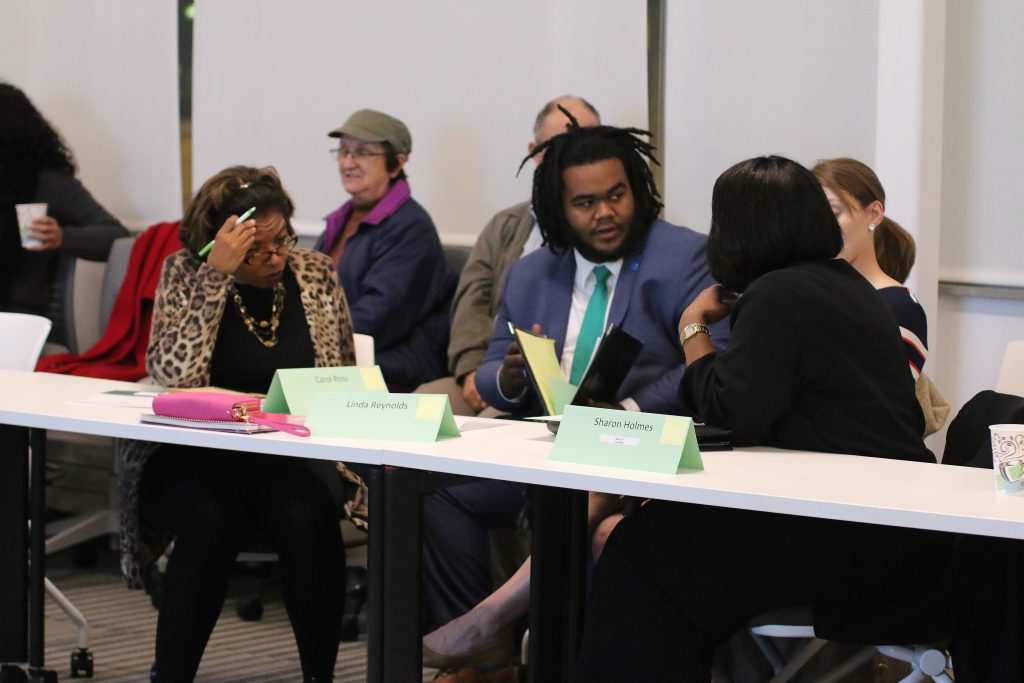
City officials, students, professors and community members rarely end up in the same room, but on Oct. 25, they gathered in the Koffman Southern Tier Incubator for the first Town-Gown Advisory Board meeting.
The board, which consists of 32 people representing both the University and the city, will focus on addressing issues relevant to both parties. The board has been planned for years, but last semester’s blue-light protests renewed the call for a town-gown committee.
Ideas will be generated in five subcommittees that focus on transportation and parking, student housing, promoting and cultivating positive community engagement, safety and dangerous or underage drinking. Each subcommittee will have two co-chairs, and they will present their proposals to the board. If the proposal passes the board, it will head to the executive committee, which includes Vice President for Student Affairs Brian Rose; Binghamton Mayor Rich David; and Terrence Kane, chief of staff in the BU President’s Office.
According to Randall Edouard, co-chair of the board and the assistant vice president for student affairs, the new board was designed after extensive research on town-gown groups at other colleges and universities, including Cornell University and University of Vermont.
“There is a system to what we are doing, and there are colleges and universities who are doing this that are doing it well,” Edouard said. “We have issues, but we are not unique.”
The first meeting acted as an orientation and declaration of purpose for new board members. According to Jared Kraham, Binghamton deputy mayor and co-chair of the board, city and University officials have been working together to plan the first meeting and set up the board.
“Tonight will kind of set the tone, set the stage for the subcommittees to kind of drive a lot of the conversation,” Kraham said. “[It will] set the playing field for what I think will be a very productive series of meetings going forward.”
Binghamton Mayor Rich David made opening remarks and highlighted goals for the board.
“This is a group that is going to roll up its sleeves and get to work,” David said. “This is not something where we’re just going to meet, have a talk and meet and continue to talk, this is about action, this is about making our community better.”
Following the opening remarks, Edouard discussed the importance of the board and its overall purpose, which he defined as facilitating communication, identifying issues related to campus interactions, increasing accountability and finding solutions.
“There’s a lot that we need to do,” Edouard said. “There’s a lot that we are going to do. But what is key is enhancing the town-gown relationship between Binghamton University and the surrounding neighborhoods. We formed this board in order to make sure that we can do that.”
The meeting also included an opportunity for the subcommittees to meet for the first time, and for the public to voice ideas, questions and concerns. Brianna Cea, the president of the Roosevelt Institute and a junior double-majoring in political science and philosophy, politics and law, shared thoughts and suggestions with the board.
“It’s great seeing students working with elected officials and it’s really important that the board engages with the public,” Cea said. “This year’s board is setting a precedent for future town-gown relations and it’s important that they set a positive one.”
Although subcommittees will meet frequently, the board will only meet two more times this academic year. A date for the next meeting has yet to be set, but it is expected to fall sometime in February.


